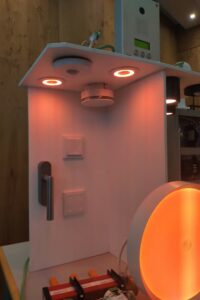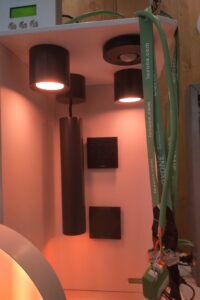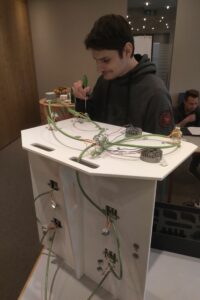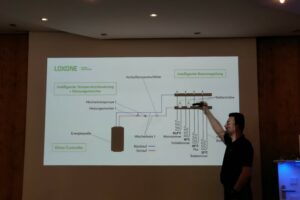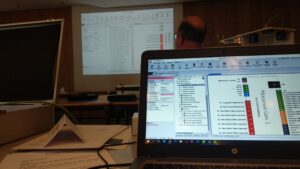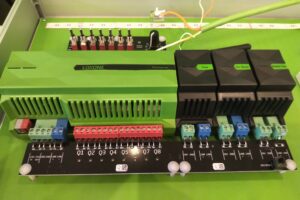A training for the Loxone Smarthome Systems took place in Seeboden from 9.3.-12.3.2020. Thanks to an educational cooperation between the company Loxone and Carinthia University of Applied Sciences, two members of the AAL research group, Michael Reiner and Philip Scharf, were among the participants.
The aim of the training was to get a good insight into the functions and programming of the system and to be able to implement this knowledge in smart home projects. The topic of smart homes is of great importance for the AAL research unit, as these technologies support senior citizens in their daily lives and thus help to relieve the burden on caregivers.
The first day of the four-day training consisted of a theoretical unit about the company and the system. In this unit, the participants got a great overview of the company with insights into the history, structure and activities of Loxone. Another exciting part was the overview of the individual functions of the system.
For the remaining days of the training, each team consisting of two people received a test system because the rest of the training was mainly hands-on training. Shortly after receiving the test system, there was a challenge for all teams: which team is able to assemble and wire the test system the fastest. Despite the disadvantage caused by the fact that most of the other teams were trained electricians, our team did well and ended up in the midfield of the participants.
Day two and three of the training consisted of alternating theoretical and practical units on the basic functions of the Loxone system. The functions discussed were:
- Lighting
- Shading
- Heating
- Cooling
- Multiroom audio
- Access solutions
- Security functions
The fourth and last day of the training dealt with project design and automatic configuration of a system. It is very easy to plan a smart home project with the Loxone software. Many steps of the programming are taken over by the software. The more carefully the planning phase is executed, the better it works. At the end of the training there was another challenge to master, in which our team had a slight advantage due to the education and work at CUAS: the planning and partial programming of a project. In this challenge our team emerged victorious delivering a very good time score.
A large part of the newly acquired knowledge can also be used directly in a project of the research group: the smart home demo case. The smart home demo case is a mobile demonstrator to show interested people, for example in schools or care facilities, the advantages of a smart home. Further information on the project will be published in a later report.
